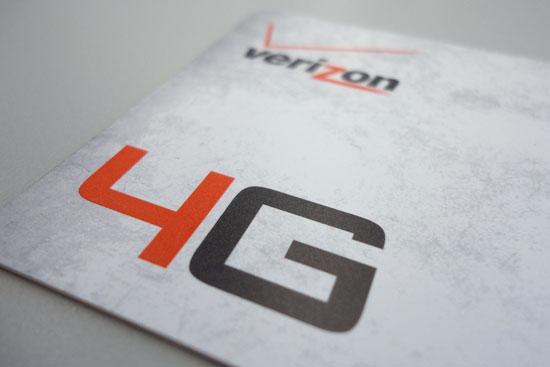
4G is a feature we all have become accustomed to over the span of the last year or so. The term has found itself embedded in the names of new devices, in carrier branding and as the subject of hot headed flame wars over what is and isn't "4G". Respective "4G" technologies can be found in anything from low-end smartphones to the highest of high-end tablets.
That said, not every device comes with 4G capabilities. And, depending on who you're talking to or which carrier provides service to you, your "4G" smartphone may not be as fast as you think it is.
Sure, almost every smartphone released these days comes with 4G branding of some sort, but that doesn't necessarily mean it meets all 4G standards. Some carriers would prefer the lines between different cellular technologies be blurred, but there is a significant difference in a HSPA+ 4G phone, a 4G phone using WiMAX and a 4G LTE device. (Say what you will about what is or isn't true 4G. Neither HSPA+ or LTE are true 4G, but for the sake of this article and my own sanity, both will be referred to as 4G.)
Take the recent Samsung Galaxy S III for example. With a Qualcomm Snapdragon S4 chipset, only some of the U.S. variants of the Galaxy S III are donned with LTE connectivity. The international version instead comes with HSPA+ connectivity since the quad-core Exynos chipset made by Samsung is not yet compatible with LTE. (I figure how scarce LTE is outside of the U.S. might also have something to do with it.) Nonetheless, both devices are considered "4G" devices, yet the networks they utilize are vastly different.
To wireless connoisseurs, there is only one currently existing (and readily available to consumers) wireless technology worth designating as 4G: Long Term Evolution, or LTE for short. And most of the wireless providers here in the States have only affirmed their stance as they all plan to transition to LTE at some point. But is this 4G connectivity a necessity? And is LTE something you must have?
According to a (questionable) survey performed by investment firm Piper Jaffray, 47 percent of 3,000 participating U.S.-based wireless customers feel they do not need 4G. Asked the question, "Which 4G wireless is, in your opinion, better?", 15.1 percent answered 4G LTE, 12.4 said simply "4G" and 25.7 percent believe they're all the same.
What does this particular Piper Jaffray study prove? Aside from revealing the already well-known fact that the general populace actually knows next to nothing about 4G and that Piper Jaffray has a way of asking very ambiguous questions, absolutely nothing. And, of course, no one needs 4G or LTE to begin with. In most cases, we don't even need smartphones. They're a luxury, as are the associated speeds of our wireless connections.
Regardless, the question of whether LTE is a must-have feature for some persists.
For me, I would rather not go without it again. Buying the HTC ThunderBolt on launch day, I was one of the first consumers to grace the wide open Verizon LTE network in Charlotte, North Carolina. Just a few months later, I switched back to the iPhone from the ThunderBolt and never looked back. Once the iPhone 4S launched, that's where my money went, despite lacking the LTE connectivity I was hoping for.
However, after several months of suffering with the horrendous speeds of using the AT&T Galaxy Note on T-Mobile, using a 3G iPhone and a few HSPA+ devices in a primarily 2G area, I could not be more of a wireless speed demon.
I recently moved back into the Charlotte Metro area and back into a very strong LTE market for both AT&T and Verizon. I honestly couldn't be more happy with how solid the speeds and signal have been, and it has only made me realize just how much I missed not having to put my phone down to wait on my Twitter feed to refresh or for a Web page to load.
Is LTE a necessity? Of course not. But considering I have to pay the same amount each month with or without it, I would rather get my money's worth and utilize every possible connection. That's a far cry from my answer to a similar question last October.
And there is another pressing matter on everyone's mind. If the next iPhone doesn't come equipped with LTE, will it still be worth buying? I already have my doubts about the next iPhone. There is a lot on the table and more ways Apple can go wrong that I care to count. LTE connectivity is only one of the many features I hope the next iPhone has, and a lack of LTE will certainly be a deal-breaker for me.
A lack of LTE is one of the main reasons I'm having such a hard time going prepaid, using the Galaxy Nexus full-time and primarily using the iPhone 4S. What about you, ladies and gents. We know LTE isn't a necessity, but is it a must-have feature for you? Will you pass on the next iPhone if it doesn't have LTE?